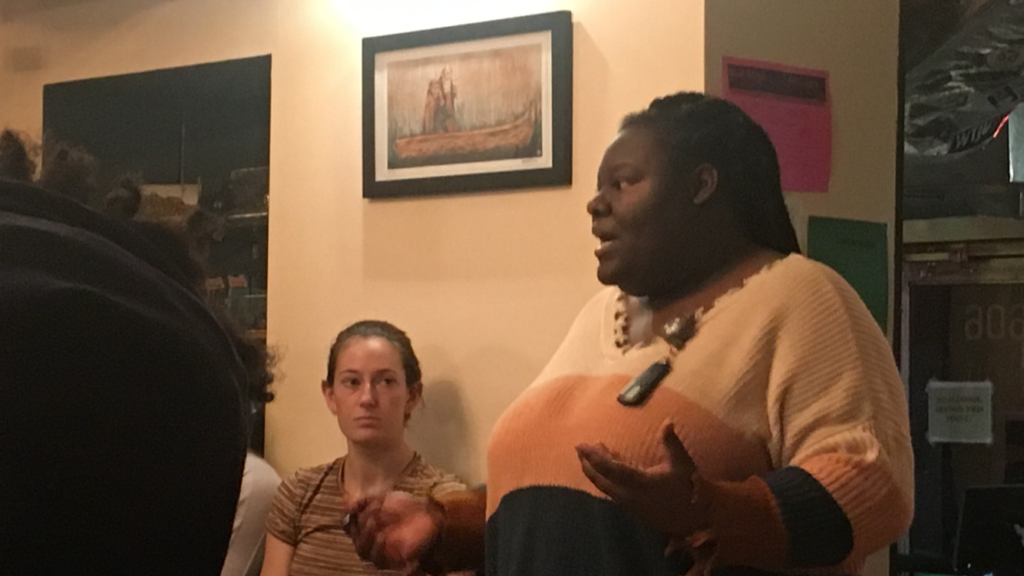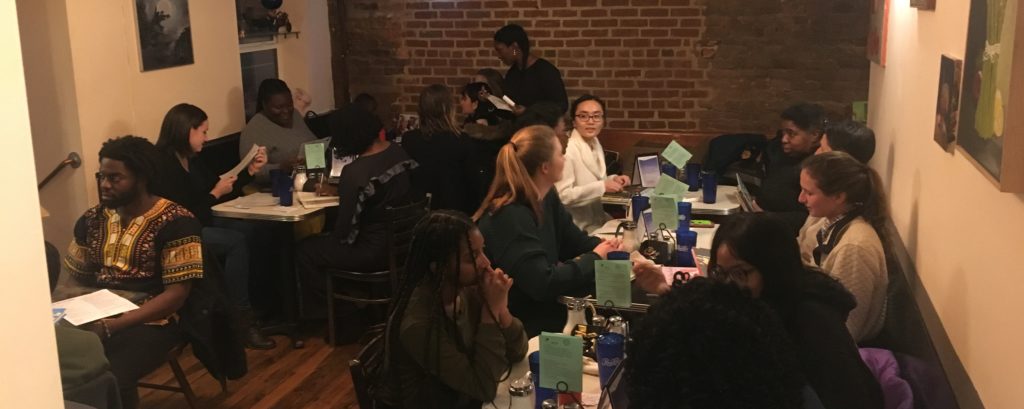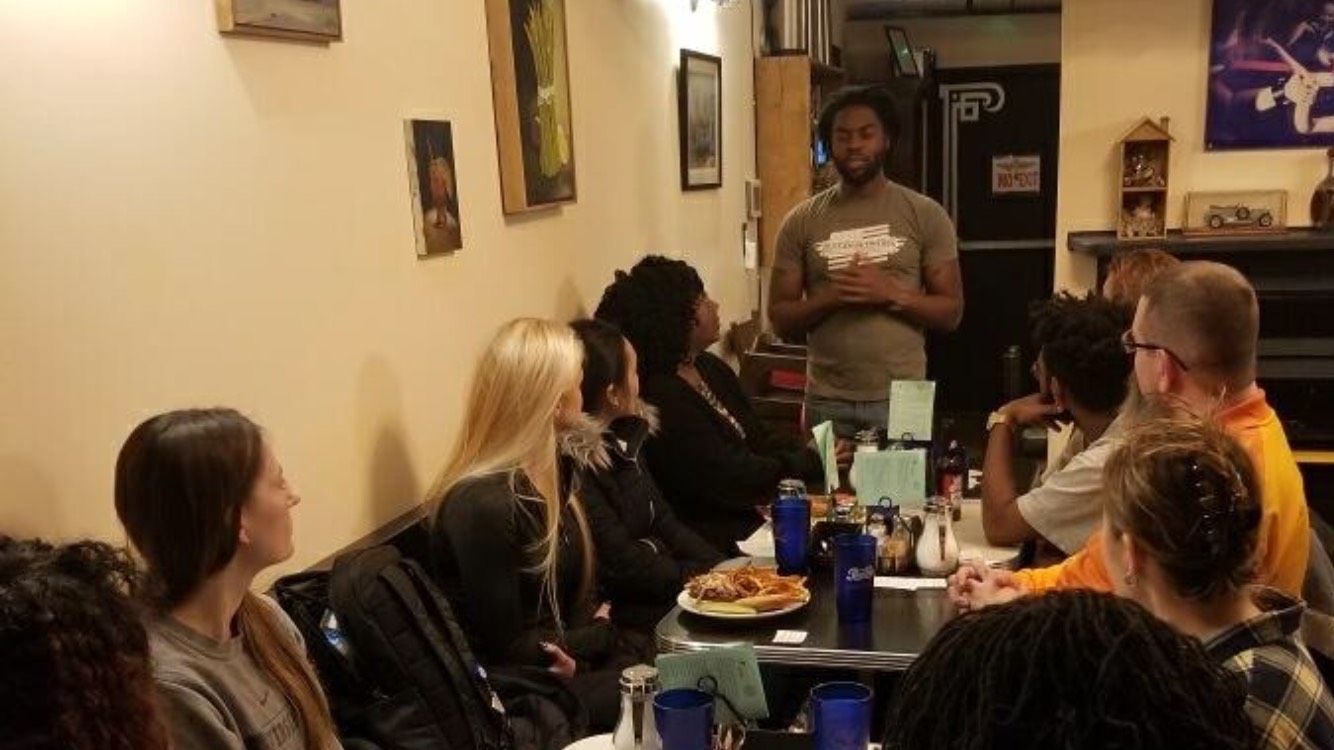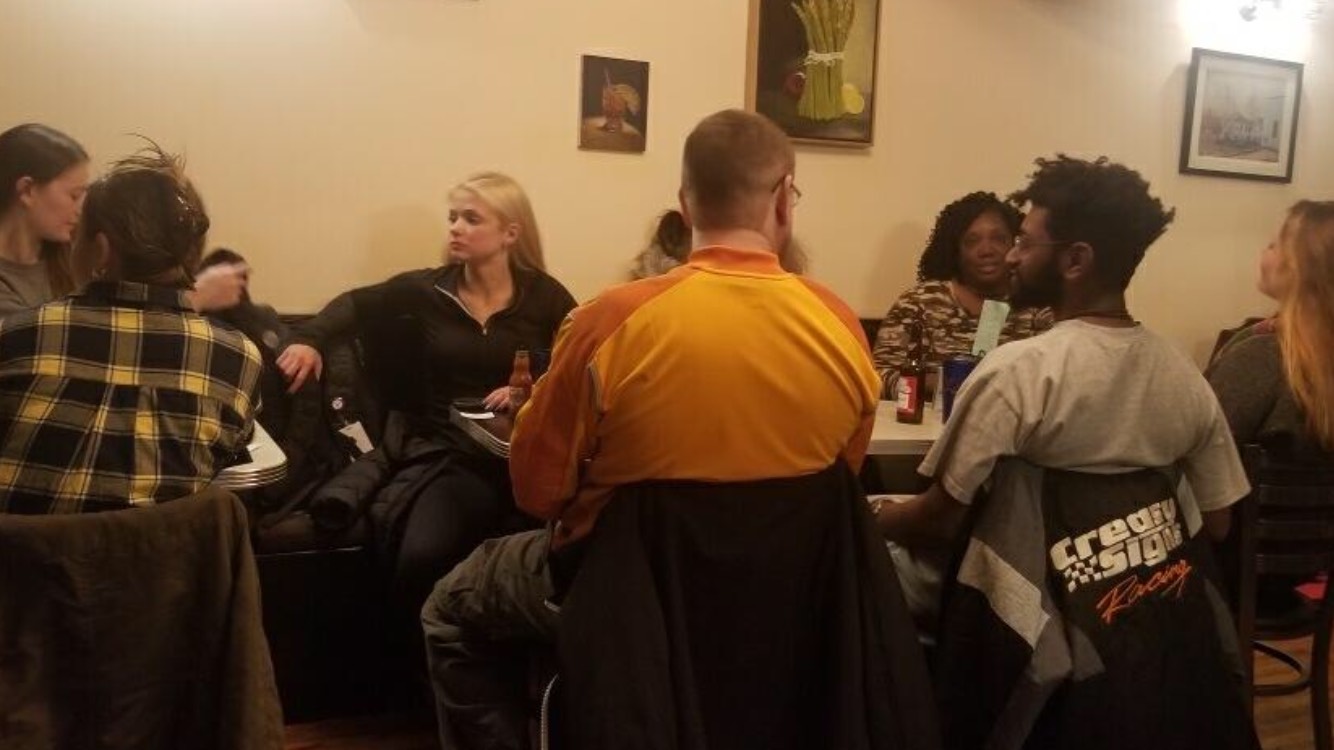Here’s a true thing that feels absurdly difficult to talk about. White people do not have enough authentic relationships with enough Black People. We know it’s true. Why is it so hard to say? An authentic relationship with a Black Person is just like an authentic relationship. It’s all of the things. It’s not just getting a meal together. It’s the joyful things, right? It’s the love and laughter and giggling and relaxing. It’s also the anger, and the reconciling, and the sorrow, and pettiness, and hurt feelings. This is the hard stuff about relationships. With an interracial relationship you add in the intersection of race, and power dynamics, and privileges. White people are uncomfortable even thinking about our relationship to racism, prejudice, privilege, and power; we don’t want to do the internal work to hold ourselves accountable, and so we don’t do the external work to have a genuine relationship with a Black person and so we don’t even try. And worse, we talk about our Black Friend, and how she said it was okay to be racist.
My advice to white people, particularly white women, is NOT to suddenly intrude onto Black people and think that they want you as their white ally friend. They probably don’t. You’re probably not going to be a good friend, yet. I don’t remember when this popped into my head, but recently I thought, “White people sure need to work on being likeable.” Likeable is NOT being nice; it’s being present and authentic in a relationship. White people need to trust Black people enough to be their best authentic selves. I think unexamined fears and anxiety cause well-intentioned white people to display a range of unpleasant emotions and actions when interacting with Black people.
There are so many different kinds of relationships– as many kinds as there facets of our personalities. Some white people in Charlottesville seem to think that the only way to have a relationship with a Black person is over racial justice activism or talking about race. It seems so elementary to say, but Black people have fully formed lives. To expect a Black person to talk about racism with an unknown white person is a traumatic act. To reduce a Black person to only their racial identity is a traumatic act. I can’t give you a list of what Black people like to talk about, because Black people are not a monolith. But I can tell you this, from my lived experience, Black people like the full range of dumb, boring, pop cultural, esoteric, oddly specific things that you do. Again, it seems basic, but if you’re trying to develop relationships with people, probably avoid saying stuff like “I wouldn’t have thought you’d like that…”, or “Huh, how’d you’d find out about that?” I do think discomfort and anxiety leads to saying dumb things. I feel like there are people who are saying “But I don’t do that…” If you aren’t, who are these white people saying dumb stuff? I’ll tell you, sometimes it’s me.
There’s a balance in moving through the world. I try really hard to not say hurtful or ignorant words, but I also accept that I sometimes do. White people hate to be vulnerable or wrong– that’s a part of white supremacy/fragility. If breaking down white supremacy involves me looking dumb for the cause, I’m good. White supremacy manifests itself in personal relationships in white people having to dominate and make the decisions or always sounding right or in authority. They pick the restaurant– the kids come to play at the white household– They head the committee– White people still hold the power. Developing an authentic relationship requires being vulnerable. White people becoming vulnerable is devastating to white supremacy. Anti-racist vulnerability does not look like dumping all your feelings onto a Black person. Anti-racist vulnerability means asking for support or help, asking for accountability, ceding control, apologizing, asking permission. Anti-racist vulnerability looks like respect and trust.
I can only speak for myself, but I don’t think my anti-racism work is legitimate if I do not have deep authentic relationships with Black people. I don’t know that I trust myself enough to know what institutions need to be smashed without someone to yell, “Hey, Dolly, not that one!!” If I don’t have mutually trusting relationships with Black people, then there is no accountability for my anti-racist work.
This work would not be possible without Toni Barskile.












